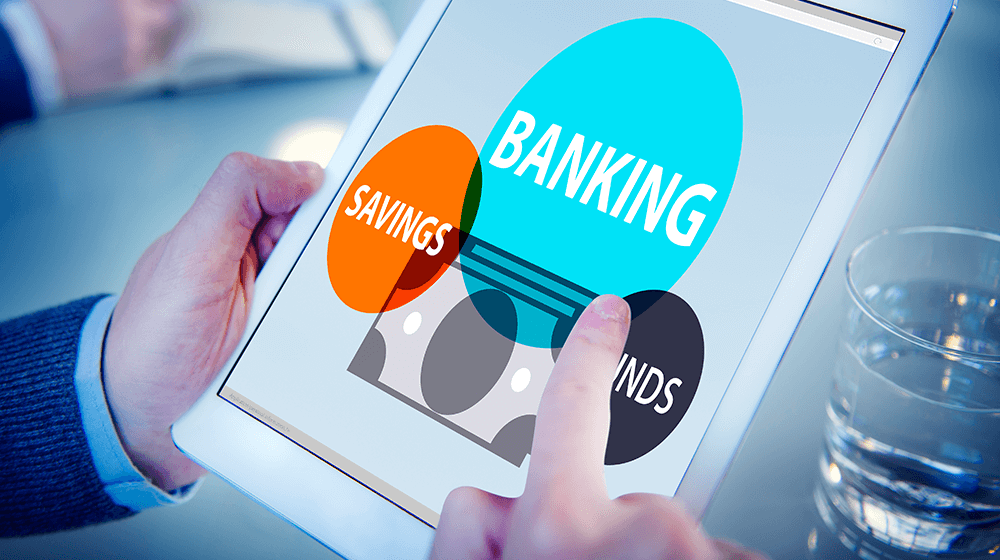Top Tips for Opening a Savings Account: Make Certain Reliable and smooth Setup
Opening up a bank account may seem straightforward, yet a methodical approach can dramatically boost the experience and established the phase for a successful banking relationship. By understanding the variety of account types readily available, collecting crucial documents, and comparing banking establishments, one can stay clear of common pitfalls.
Understand Different Account Kind
When opening up a checking account, it is necessary to familiarize on your own with the different account kinds readily available. Recognizing these options will certainly enable you to pick an account that finest fits your economic requirements and objectives.

Financial savings accounts, on the various other hand, are designed for conserving money and commonly supply greater rates of interest than inspecting accounts. They might have withdrawal limitations, urging you to save over time. For individuals searching for a greater yield on their savings, CDs provide set rate of interest for a specified term, however they need you to lock in your funds up until maturity.
Furthermore, there are specific accounts like cash market accounts and pension, each with special functions and advantages. By thoroughly comprehending these account types, you can make educated choices that straighten with your financial approach and lifestyle.
Gather Required Documentation
Collecting the needed paperwork is a critical action in the procedure of opening a bank account. Appropriate documents not just facilitates a smooth application procedure but also assists in validating your identification, guaranteeing compliance with governing requirements.
Additionally, a Social Safety Number (SSN) or Individual Taxpayer Recognition Number (ITIN) is frequently needed for tax coverage objectives. Some bankss might also request evidence of address, which can be demonstrated through energy expenses, lease agreements, or bank declarations.

In addition, if you are a minor, parental approval and recognition may be called for. It's suggested to check with the particular bank regarding their paperwork demands ahead of time, as these can vary. By ensuring all needed files prepare, you can quicken the account opening process and stay clear of potential delays.
Research Study Banks and Costs
An extensive comparison of different bankss and their cost structures is vital for selecting the best monetary establishment for your demands. Different bankss offer a series of solutions, and comprehending their costs can considerably affect your overall banking experience. Begin by determining your financial needs, such as whether you require an inspecting account, cost savings account, or both.
Following, take a look at the charge structures related to each account type. Common costs include monthly maintenance costs, over-limit costs, atm machine use charges, and international purchase charges. Some bankss might forgo these costs if you keep a minimal balance or set up straight down payments.
Furthermore, explore any type of other fees associated with account services, such as cable transfers, published declarations, or check orders. It is likewise wise to review the rate of interest offered on interest-bearing accounts, as these can vary considerably amongst organizations.
Consider Online vs. In-Person
Selecting between online and in-person financial can considerably affect your general financial experience and convenience (bank account opening). Each alternative presents special benefits that accommodate different preferences and lifestyles
Electronic banking uses a high level of adaptability and access. With the capacity to manage your account from anywhere check over here using a mobile phone or computer system, online banking enables fast purchases, balance checks, and expense payments any time. In addition, several on the internet bankss provide competitive rate of interest and reduced fees because of minimized overhead expenses.
Conversely, in-person banking provides an individual touch that some consumers might find calming. Checking out a physical branch enables straight interaction with bank reps, which can be particularly beneficial for intricate inquiries or economic advice. In-person financial also allows consumers to transfer cash money, acquire instantaneous aid, and construct connections with staff, fostering a feeling of depend on.
Ultimately, the choice in between online and in-person banking should be based on your individual requirements, comfort level with modern technology, and the certain services you require. Consider your financial habits and preferences meticulously to determine which choice lines up best with your monetary goals.
Review Terms and Conditions

When assessing the conditions and terms, pay close focus to crucial elements such as fees, passion prices, and account functions. Seek monthly maintenance charges, deal limits, and penalties for overdrafts or early withdrawals (bank account opening). Recognizing these fees can assist you stay clear of unexpected costs and handle your funds better
In addition, take into consideration the rates of interest offered on financial savings or examining accounts. Greater rates of interest can substantially affect your financial savings over time. It's also vital to understand the terms connected to perks, benefits programs, and promotional offers, as these can improve your financial experience.
Finally, guarantee you know the bank's policies on customer care, dispute resolution, and personal privacy. Familiarizing yourself with these problems will encourage you to make informed decisions and establish an effective connection this content with your bank. Putting in the time to completely review the conditions can prevent future misunderstandings and foster long-lasting complete satisfaction with your financial experience.
Final Thought
In final thought, a well-informed strategy to opening a bank account facilitates a reliable and smooth configuration process. Recognizing the different account types, collecting needed documentation, and investigating bankss and connected charges are crucial actions.
Opening up a bank account might seem straightforward, yet a systematic method can considerably enhance the experience and established the phase for a successful financial relationship.The most usual types of accounts include checking accounts, savings accounts, and certificates of down payment (CDs)Savings accounts, on the other hand, are created for conserving money and commonly use greater interest prices than examining accounts. Begin by determining your financial requirements, such as whether you need a checking account, cost savings account, or both.
Recognizing the various account types, gathering needed documents, and researching bankss and connected charges are crucial steps.